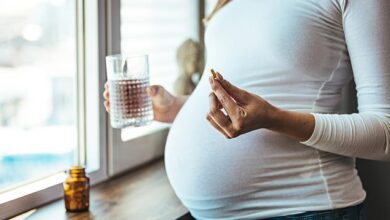Liverpool woman tells of surprising condition that causes her lungs to collapse every time she has her period
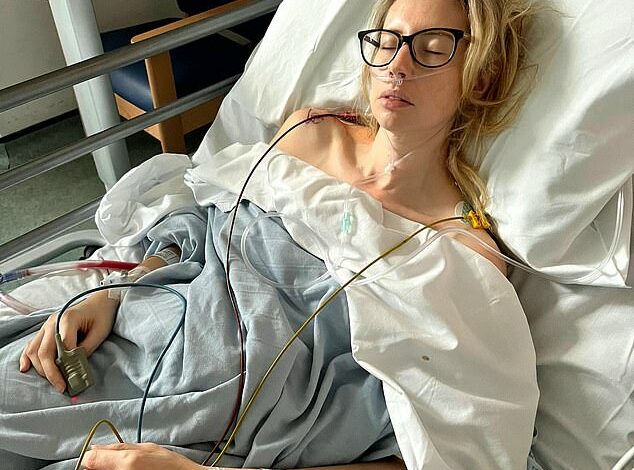

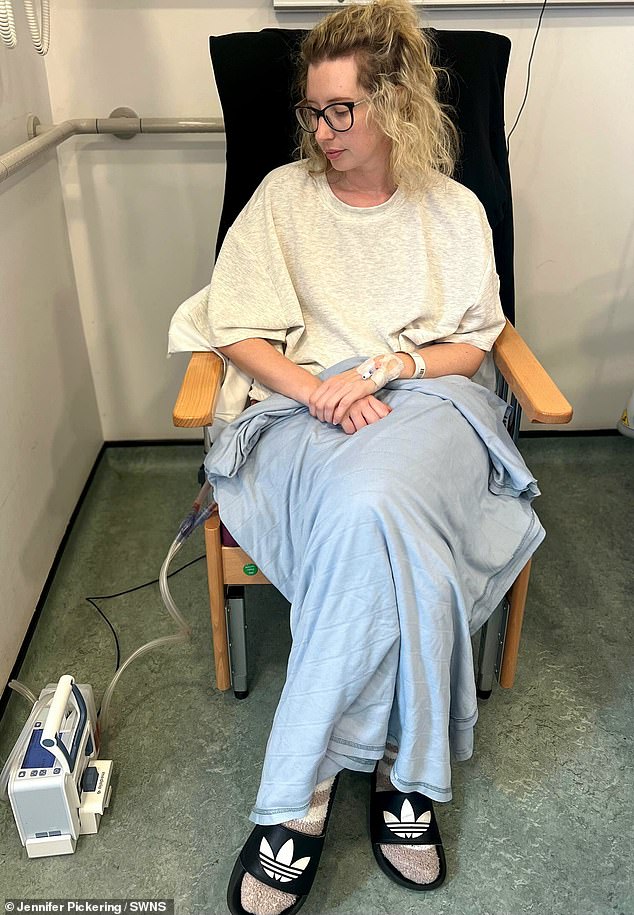
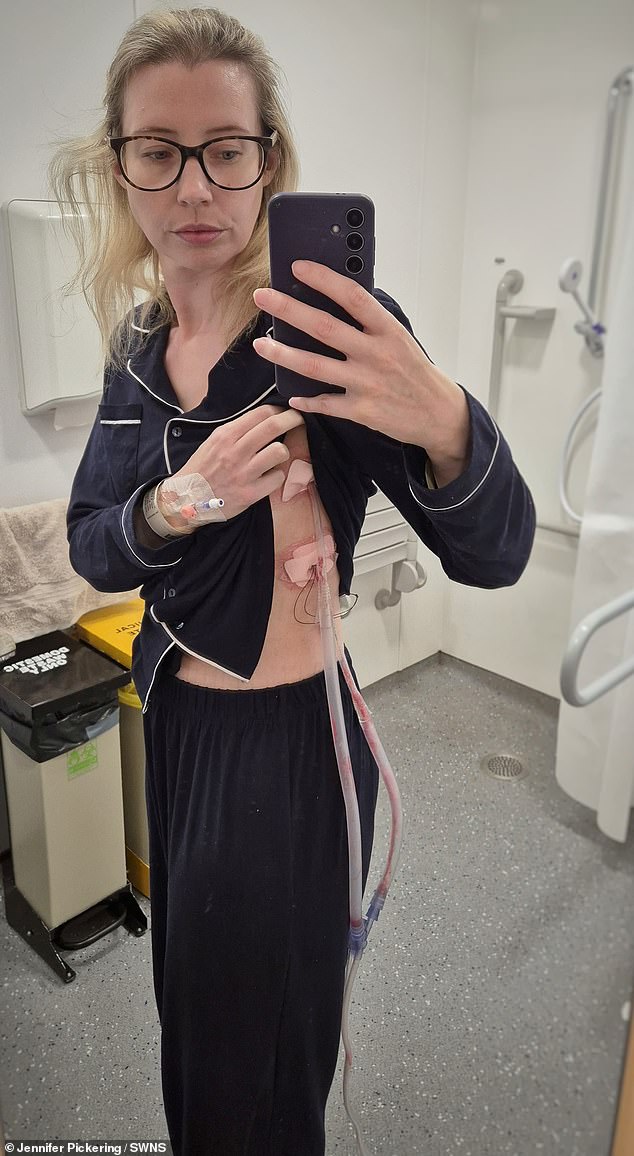
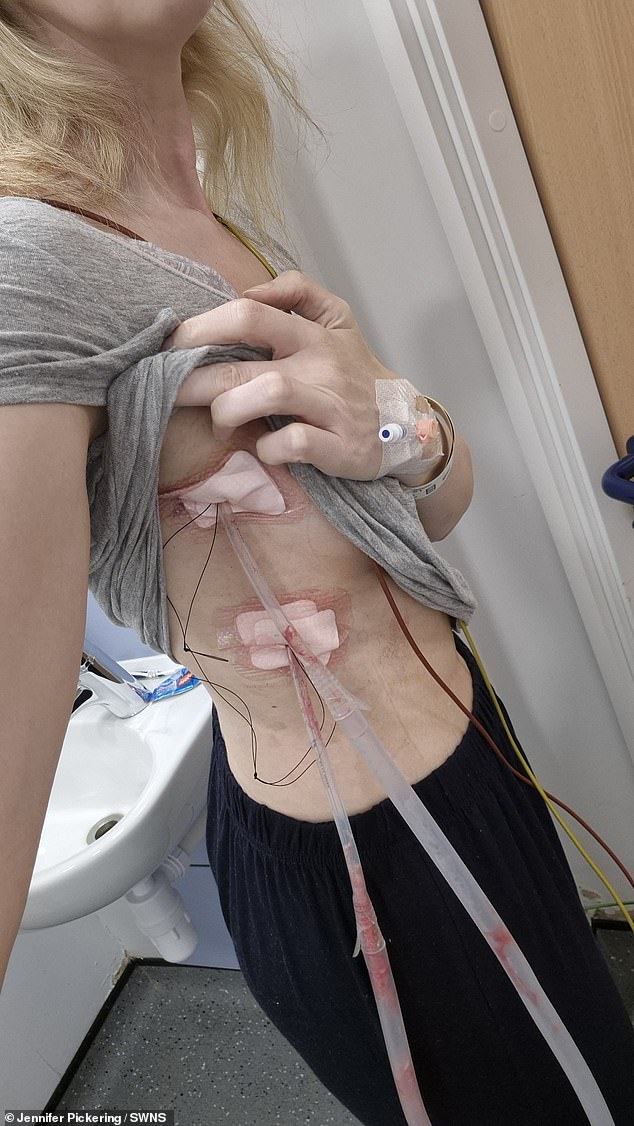
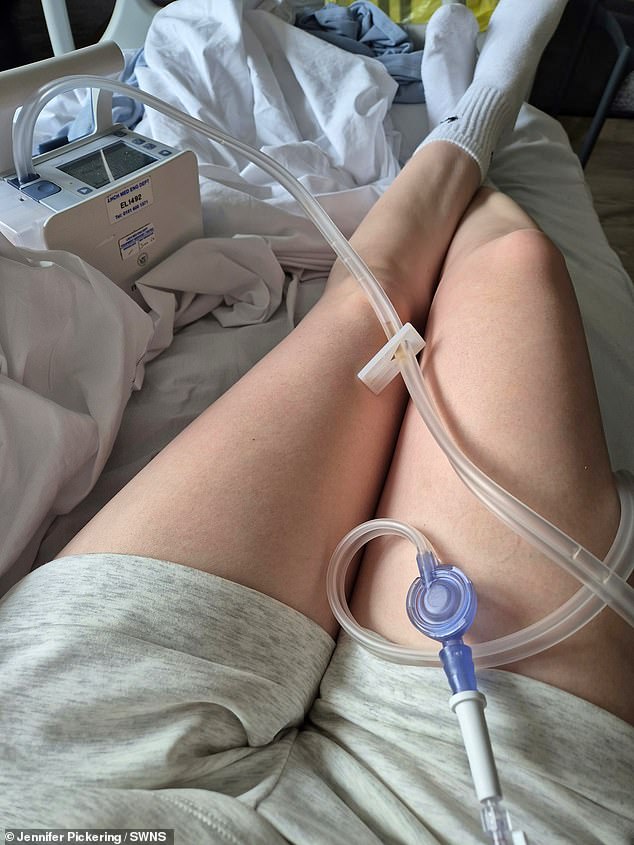

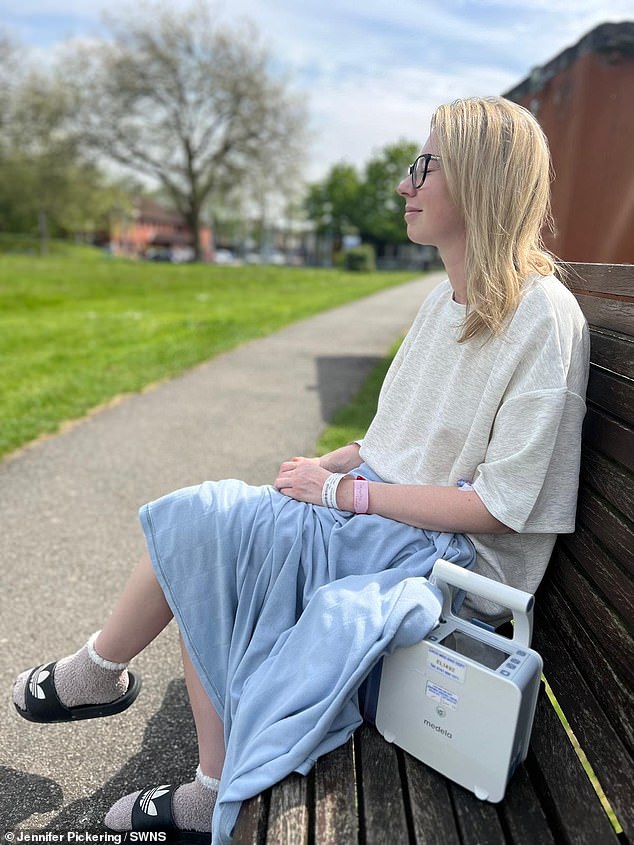
A woman from Liverpool has told of the terrifying experience of having a collapsed lung every time she has her period, in what doctors believe is a rare form of endometriosis.
Jennifer Pickering, 39, led an active life until September 2023, when she thought she had sprained her shoulder blade at the gym.
But after two days of pain, an X-ray revealed that her right lung had collapsed.
Since then, the former Pilates teacher has suffered from a collapsed lung once a month, exactly in time with her menstrual cycle.
While she has no official diagnosis, doctors have said “informally” that she has thoracic endometriosis, a rare form of the reproductive disease in which tissue from the uterus spreads to other parts of the body.

Jennifer Pickering, 39, led an active lifestyle until September 2023 when she thought she had sprained her shoulder blade at the gym

After two days of pain, an X-ray revealed her right lung had collapsed. Since then, the former Liverpool pilates teacher has had a collapsed lung once a month — right around the time she was menstruating
Usually the tissue grows in the abdominal and pelvic area, for example on the intestines or bladder.
But in thoracic endometriosis, which is said to affect about one in 10 women with endometriosis, the tissue grows in the chest cavity, affecting the lungs.
Endometriosis affects around 1.5 million women in the UK and causes extreme pain, usually around the time of their periods.
It can also cause intestinal complaints, fatigue, problems conceiving and painful urination.
According to Endometriosis UK, thoracic endometriosis acts like the lining of the womb: each month during the menstrual cycle, it builds up and then sheds.
It can cause chest pain and a collapsed lung. Sometimes patients cough up blood or blood is found in the chest cavity.
Without treatment, the condition can be fatal.
However, for many women, these symptoms go unnoticed for years, according to Endometriosis UK.
If further tests confirm Mrs Pickering’s diagnosis of thoracic endometriosis, she may be prescribed the contraceptive pill and will be required to follow a strict, healthy lifestyle.
Mrs Pickering said: ‘I feel like thoracic endometriosis has taken over my whole life.
‘I loved traveling, hoverboarding, and going to the gym. It’s been really hard to give all that up.
‘The treatment was also extremely painful.’
In September 2023, Ms. Pickering was cooling down after a light workout at the gym.
She did some yoga exercises on a mat, initially focusing on her legs and glutes.
But when she assumed a certain position, she felt something ‘tear’ in her right shoulder blade.
“It was like someone stabbed me in the back, it hurt so much,” she said.
“I was like, what the hell is going on here?”
“I immediately left the gym thinking I had sprained my shoulder.”
Two days later, realising the pain had still not gone away, she decided to drive herself to the Royal Liverpool University Hospital to request a scan.
But the scan showed that her right lung had spontaneously collapsed. She had to go to a pulmonologist to have the lung re-inflated.
After her surgery, she had six weeks of consultations with the pulmonologist, assuming that it ‘probably’ would not happen again.

Thoracic endometriosis acts like the lining of the uterus, building up each month with the menstrual cycle and then being shed, according to Endometriosis UK

Mrs Pickering began to think that her lung collapses could be related to her menstrual cycle, but doctors initially dismissed this as she had not been diagnosed with pelvic endometriosis.
“It happened a second time in October 2023,” Ms Pickering said.
‘I was kept in the ventilator unit at the Royal Hospital for a week, until the first week of November.’
For the first time, Mrs Pickering began to suspect that her lung collapses could be related to her menstrual cycle. However, doctors initially dismissed this as no diagnosis of pelvic endometriosis had been made.
She also did not experience any symptoms of pelvic endometriosis, such as heavy periods and pelvic pain.
In November, she was referred for video-assisted thoracoscopic surgery (VATS) – which involves placing a small camera and surgical instruments into the chest – to treat her collapsed lung, and spent “months” in recovery.

In November, she was referred for video-assisted thoracoscopic surgery (VATS) – which involves inserting a small camera and surgical instruments into the chest – to treat her collapsed lung, and spent ‘months’ in recovery

Mrs Pickering spent two months in recovery, until her lung collapsed for the third time in January 2024.
She said, ‘During the postoperative phase they have to give you a so-called chest drain.
‘It removes excess fluid or air, which if not removed, can be very dangerous for the heart.
“They are very painful and it is very difficult to sleep with them. It literally feels like there is a foreign body in your chest.”
‘In addition, you have to be very careful for the first three to eight months. You get a very detailed recovery program.
‘For example, it says that you are not allowed to vacuum until you are 12 weeks pregnant, and that you are not allowed to pick up your child until you are 10 weeks pregnant.’

A sample has been sent for a biopsy – and Mrs Pickering is still awaiting the results, but doctors have told her it is ‘more than likely’ womb lining tissue
Mrs Pickering spent two months in recovery, until her lung collapsed for the third time in January 2024.
“After January, it continued like this every month,” she said.
‘I sat down and did the math: there were 26 days between each one.
‘I really suspected that it had something to do with my cycle.’
In April 2024, Jennifer was again diagnosed with cyclic lung collapse.
She was referred to a radiologist experienced in diagnosing thoracic endometriosis. An MRI scan showed she had ‘lumps’ around her chest cavity.
A sample has been sent for a biopsy and Mrs Pickering is still awaiting the results, but doctors have told her it is ‘more than likely’ endometrial tissue.
In the meantime, Mrs Pickering has started raising money GoFundMe to fund a training day for doctors on thoracic endometriosis.
“We are still in the early stages of planning right now,” she said.
‘I want to make doctors aware of the condition, as it is often missed on many scans.
“It’s about training radiologists in what to look for. I hope I can invite my colleagues to give a lecture.”



